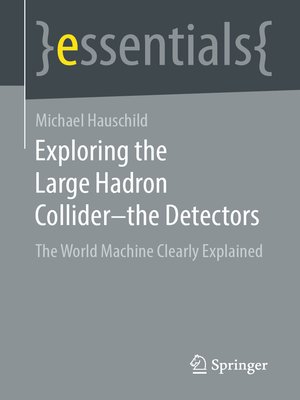Exploring the Large Hadron Collider--the Detectors
ebook ∣ The World Machine Clearly Explained · Essentials
By Michael Hauschild

Sign up to save your library
With an OverDrive account, you can save your favorite libraries for at-a-glance information about availability. Find out more about OverDrive accounts.
Find this title in Libby, the library reading app by OverDrive.



Search for a digital library with this title
Title found at these libraries:
| Loading... |
Michael Hauschild takes the reader of this essential back to September 2008 to the bumpy start of the Large Hadron Collider LHC, the world's largest particle accelerator and today's world machine at CERN, the European Organization for Nuclear Research near Geneva, Switzerland; one of the most fascinating research centers of all. The author explains how the initial ideas led to the creation of the large collaborations at the LHC, alliances of up to 3,000 physicists. It is these collaborations that use huge particle detectors to measure the collisions at the LHC, hoping to discover new particles. After a stop of more than two years, the LHC was put back into operation in the spring of 2015 to discover the secrets of nature at higher energy than ever before.
The Author
Dr. Michael Hauschild is a particle physicist at CERN in Geneva and has been a member of the ATLAS experiment at the Large Hadron Collider LHC since 2005. During the first long measurement period of the LHC from 2010 to 2012, he witnessed the discovery of the Higgs particle in summer 2012.
This Springer essential is a translation of the original German 1st edition essentials, Neustart des LHC: die Detektoren by Michael Hauschild, published by Springer Fachmedien Wiesbaden GmbH, part of Springer Nature in 2018. The translation was done with the help of artificial intelligence (machine translation by the service DeepL.com). A subsequent human revision was done primarily in terms of content, so that the book will read stylistically differently from a conventional translation. Springer Nature works continuously to further the development of tools for the production of books and on the related technologies to support the authors.






